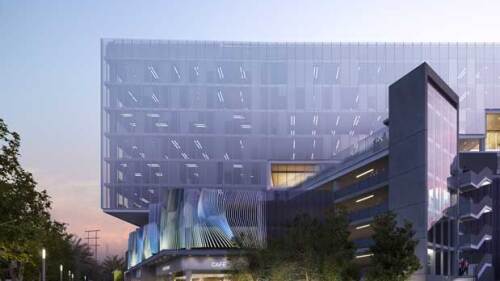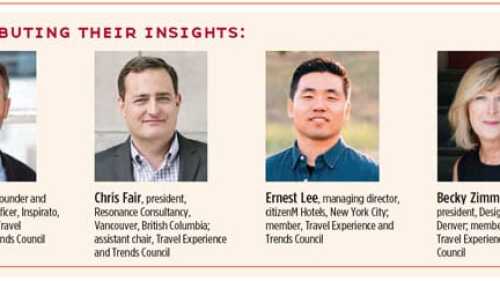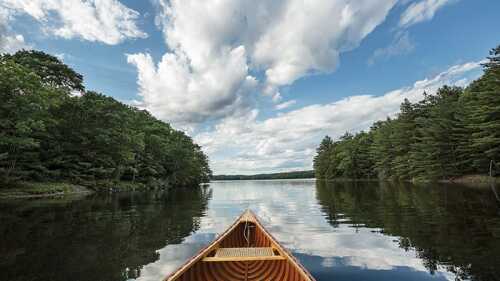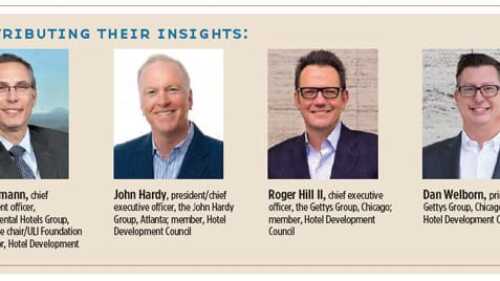Hotels and Resorts
Hotels and office buildings are taking on many of each other’s characteristics in terms of design and use. This confluence has several drivers, among them the evolution of technology, shifts in guest and tenant expectations, and the increasing mobility of the American workforce.
New, tech-based companies create temporary apartment hotels, monetize absorption vacancies, and stimulate urban mixed-use projects.
Wise choices in fixtures, finishes, and functions may draw guests’ attention.
How are tourism trends shaking up the real estate industry?
The InterContinental Shanghai Wonderland Hotel in China’s Songjiang District, near Shanghai, appears modest when approached from ground level because only two storeys project above ground and green roofs help them blend into the surrounding greenery. But when guests step inside, they see the dramatic construction, attached to the rock like a hanging garden.
Everybody is talking about authenticity. It is mentioned practically on a daily basis in the real estate world. But authenticity is more than a buzzword to boost returns. It is a must-have component of successful placemaking.
The hotel industry in Japan is evolving, with new lodging models emerging, some of which incorporate elements of the burgeoning sharing economy. A panel of real estate and hotel experts at the ULI Japan Fall Conference, held in Tokyo in November, discussed the “capsule hotel” and other models in Japan.
According to research by Marcus & Millichap, the accelerating U.S. economy, supported by strong employment growth and rising confidence levels, bodes well for continued hotel property performance. Elevated consumer and business confidence levels will likely buoy room demand through the remainder of the year, keeping occupancy at a record high and supporting growth in revenue per available room.
While America’s South continues on a steady course with a growing population and an increasing number of jobs, officials are acting on some challenges, which include traffic, housing affordability, education needs, and the rising cost of construction.
Experts in hotel development discuss the rising popularity of social spaces in hotels, the role of technology in the hotel experience, the ways guests are shaping in-room furniture design, the competition from Airbnb, the need for “Instagrammable” spaces in hotels, and changing approaches to hotel restaurants.








